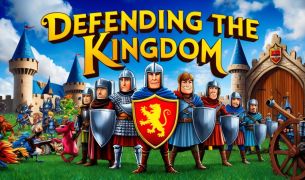Rising in the Ranks: Essential Tips for Dominating in Overwatch® 2
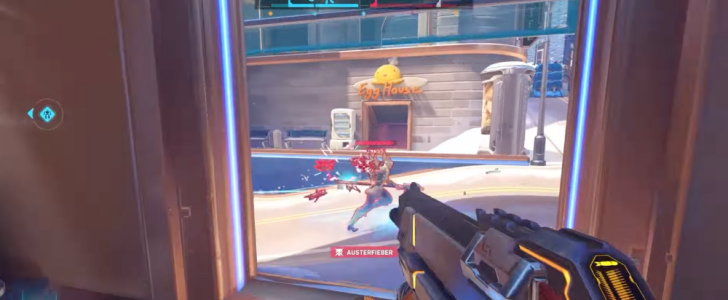
In the fast-paced and ever-evolving world of Overwatch® 2, rising through the ranks to achieve dominance is a challenging endeavor that requires not only dedication but also a strategic approach to gameplay. As a sequel to the highly acclaimed Overwatch®, this team-based shooter has brought in new heroes, maps, and a fresh set of mechanics, requiring players to adapt and refine their strategies continually. Whether you're a seasoned veteran of the original game or a newcomer aiming to make your mark in the competitive scene, mastering the essential elements of Overwatch® 2 is key to climbing the ranks and securing your place among the elite.
This article delves into crucial strategies, from hero selection and teamwork to map knowledge and effective communication, offering a comprehensive guide to excelling in Overwatch® 2. By applying these tips, you'll not only improve your individual gameplay but also enhance your ability to contribute positively to your team, ultimately leading to more consistent victories and a higher ranking. Let's dive into the essential tips for dominating in Overwatch® 2.
Understanding Hero Roles and Synergies
One of the foundational aspects of excelling in Overwatch® 2 is a deep understanding of hero roles and how they synergize with each other. The game categorizes heroes into three main roles: Damage, Tank, and Support. Each role has a unique set of responsibilities that, when executed correctly, contribute to the overall strength and strategy of the team.
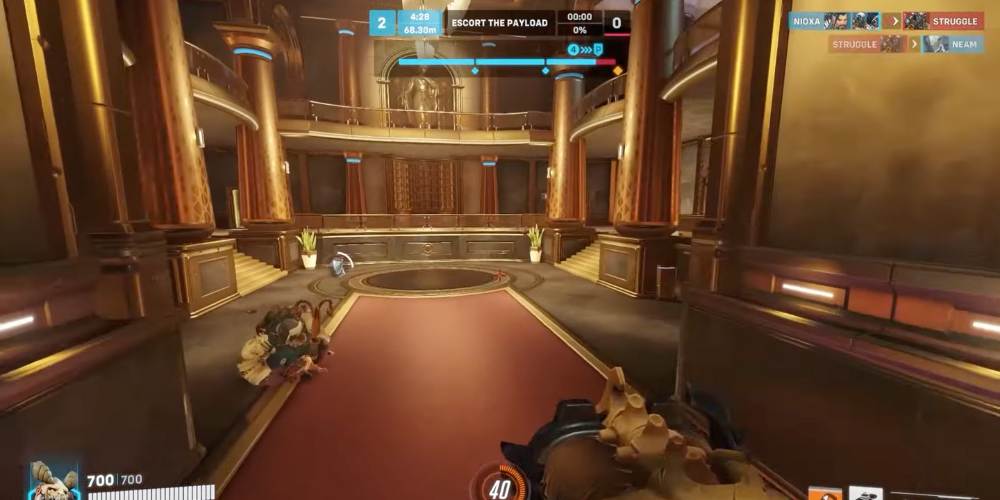
Damage Heroes: These are the characters responsible for applying offensive pressure on the enemy team. Mastery of a damage hero means not only being able to secure eliminations but also knowing when to engage or retreat to avoid feeding the enemy ultimates.
Tank Heroes: Tanks are crucial for creating space on the battlefield, protecting teammates, and disrupting enemy formations. Understanding how to manage your barriers, when to initiate fights, and how to position yourself can make or break a match.
Support Heroes: Supports are tasked with healing and assisting their teammates, but their role goes beyond just keeping health bars full. A proficient support player should also be aware of when to use their abilities for offense or defense, how to position themselves safely, and when to prioritize one teammate over another.
Mastering the roles requires not just individual skill but an understanding of how your hero's abilities complement those of your teammates. Hero synergies—combinations of heroes whose abilities work exceptionally well together—can significantly enhance a team's performance. For instance, combining Zarya's Graviton Surge with Hanzo's Dragonstrike can decisively turn a team fight in your favor.
Effective Communication and Teamwork
Overwatch® 2 is a game where communication and teamwork play a pivotal role in securing victories. Establishing clear, effective communication channels with your team can drastically improve coordination, leading to more cohesive strategy execution and adaptability in matches.
Use Voice Chat: Voice chat is a direct medium for sharing plans, calling out enemy positions, or coordinating ultimates. Encourage your team to use voice communication, but remember to keep conversations relevant to the game.
Ping System: The ping system allows players to quickly share information without using voice chat. Use it to point out objectives, alert teammates to enemy locations, and request healing or assistance.
Positive Reinforcement: A positive attitude can greatly influence your team's performance. Celebrate your teammates' successes and offer constructive feedback when necessary to maintain morale.
Map Knowledge and Strategy
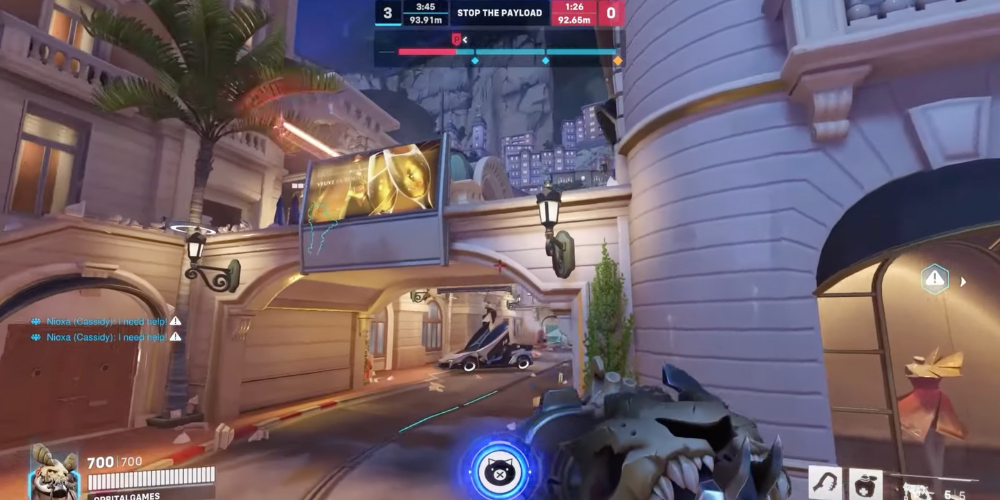
Each map in Overwatch® 2 has its unique layout, including chokepoints, flanking routes, and high-ground advantages. Familiarizing yourself with the intricacies of each map can provide you with a significant advantage.
High-Ground Control: In many cases, the team that controls the high ground has a better vantage point and increased safety from ground-based attacks. Whenever possible, use the terrain to your advantage.
Flanking Routes: Knowing the flanking routes can help you catch the enemy off guard or escape precarious situations. However, timing and communication are crucial, as going on a flank at the wrong moment can leave your team at a numerical disadvantage.
Objective Focus: Always keep the objective in mind. Overwatch® 2's fast-paced gameplay can sometimes distract players from the main goal. Whether it's capturing a point, escorting a payload, or controlling a zone, ensuring your actions contribute to the objective is key.
Adapting and Flexibility
A flexible approach to gameplay can often be the difference between winning and losing. Being able to adapt to the evolving dynamics of a match is crucial.
Hero Switching: Don't hesitate to switch heroes mid-game if your current choice is not working or if the enemy team composition counters yours. Quick adaptations can surprise your opponents and shift momentum in your favor.
Counterplay: Understanding how to counter enemy heroes is as important as mastering your role. If an enemy hero is particularly problematic, discuss with your team how you can adjust your strategy or hero picks to mitigate their impact.
Learning from Defeats: Not every game will go your way, but each match offers a learning opportunity. Review your gameplay, identify what could have been done differently, and apply those insights in future matches.
Practicing and Improving Gameplay
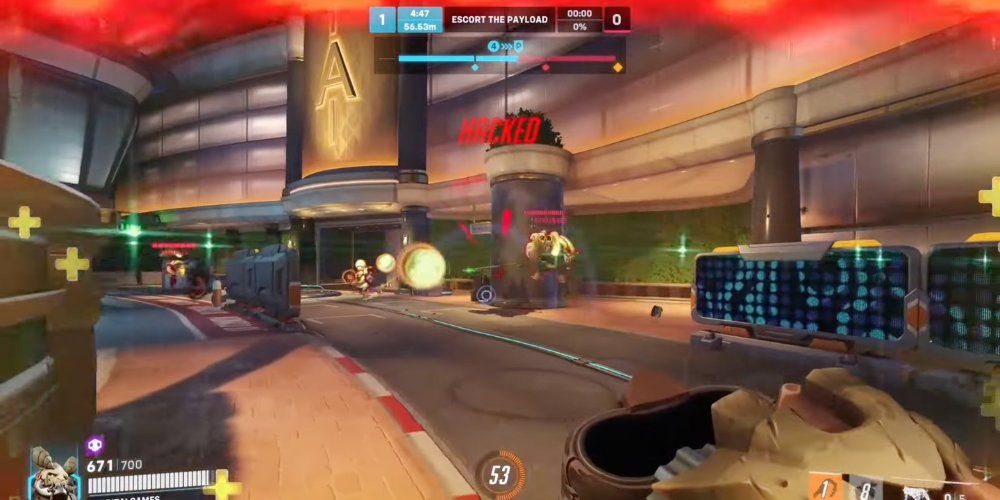
Lastly, consistent practice and a commitment to improvement are fundamental to dominating in Overwatch® 2. While natural talent plays a role, it's the dedication to refining skills that separates the good players from the great.
Focus on Individual Skill: Spend time honing your aim, movement, and ability usage in the practice range or custom games. Improving these skills will make you a more formidable player regardless of the hero you choose.
Study Professional Players: Watching gameplay streams and VODs of professional Overwatch® 2 players can provide insights into effective strategies, positioning, and hero usage. Pay attention to how they adapt to different situations and try to incorporate their techniques into your gameplay.
Stay Updated with Meta Shifts: The competitive landscape of Overwatch® 2 is fluid, with balance changes and new hero introductions frequently shifting the meta. Keeping abreast of changes helps to adapt your strategies and maintain a competitive edge.
In conclusion, dominating in Overwatch® 2 requires a combination of strategic knowledge, teamwork, adaptability, and continuous improvement. By understanding hero roles and synergies, fostering effective communication, mastering map knowledge, staying flexible, and committing to practice, you can climb the ranks and establish yourself as a top player. Remember, the path to dominance is a journey, and every match is a step towards mastering the art of Overwatch® 2 gameplay.
